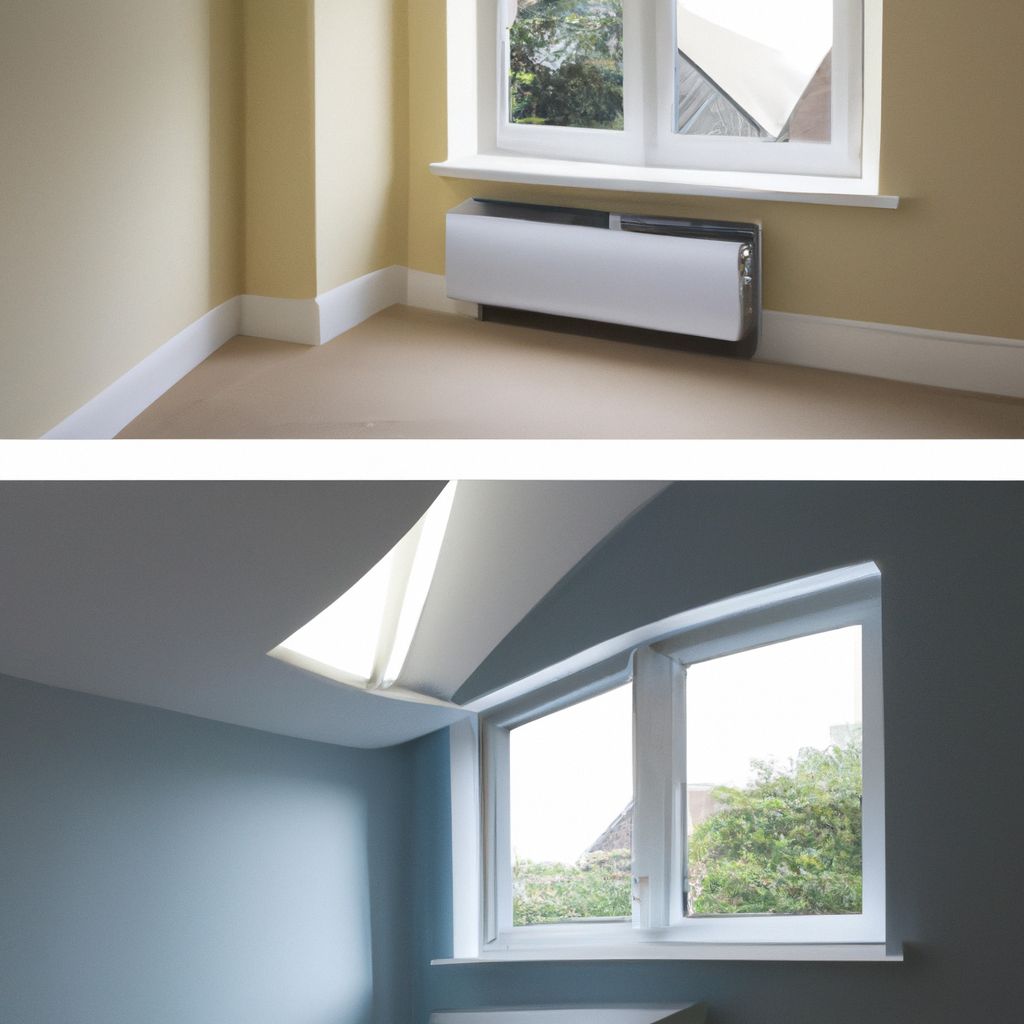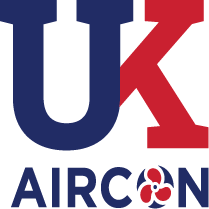Introduction
Central air conditioning and multi-split systems are popular for cooling UK properties. Central air has the advantage of cooling all rooms, but installation of ductwork may be difficult. A multi-split system offers more control and is ideal for smaller properties.
When deciding, consider the needs of your property. Central air may use more energy, but new tech can make it more efficient. Multi-split uses energy selectively, focusing on occupied areas.
Installation and maintenance must be taken into account. Central air installation is more complex and disruptive. Multi-split is simpler and requires less construction. Both need proper maintenance for optimal performance.
Choose the system that best suits your property and preferences. Central air and multi-split both have advantages and disadvantages. Assess needs, energy efficiency, and installation/maintenance requirements to decide.
Central Air Conditioning
Central air conditioning is a common cooling system in UK dwellings. It is an integrated system that cools the entire home using ducts and vents. It has an exterior unit with a compressor and condenser, and an inside unit which sends out cold air. Here are some features to consider:
- Efficient Cooling: Central air conditioning can give a consistent and comfortable indoor temperature.
- Even Air Distribution: Its network of ducts and vents mean air is evenly spread over every room.
- Convenient Control: Easily adjust the temperature for your own comfort.
- Noisy Outdoor Unit: The outdoor unit can be loud during operation.
- Installation Considerations: May need modifications to the property’s existing ductwork and electrical systems.
When using central air conditioning, size your system correctly for the home’s cooling needs. Also you should maintain it by cleaning and replacing air filters, checking ducts for leaks, and looking at the outdoor unit for any obstructions. This will let you benefit from central air conditioning and keep it working well for long. To find the best systems, you can visit ukaircon.co.uk.
Multi-Split System
Transitioning from traditional central air conditioning to a multi-split system brings a range of benefits, making it an excellent choice for your UK property. In this section, we dive into the advantages of multi-split systems, exploring how they enhance energy efficiency, allow for individualized control, and offer flexible installation options. So, let’s uncover why multi-split systems are gaining popularity and how they can transform the comfort and convenience of your home. Now is the best time to install an air conditioning system that suits your unique needs.
Benefits of Multi-Split Systems
Multi-Split Systems are a great choice for air conditioning in the UK, and offer several benefits. These include:
- The ability to control temperature independently in different rooms or areas
- Easy installation with minimal ductwork
- Cost-effectiveness through avoiding unnecessary cooling
Plus, these systems have smaller outdoor units that occupy less space, and they’re super quiet. Inverter-driven compressors provide precise temperature control and efficient operation.
To make the most of these benefits and get the best air conditioning solution for your property, consult with professionals. Don’t miss out on the chance to maximize energy efficiency and cost savings.
Explore the range of air conditioning options available to you. Life is all about choices – even when it comes to keeping cool!
Other Types of Air Conditioning Systems
Looking beyond the conventional choices, let’s explore other types of air conditioning systems that can efficiently cool your UK property. In this section, we’ll delve into two intriguing options: packaged systems and heat recovery VRF systems. Discover the unique features and advantages of these systems, and how they can provide optimal indoor comfort while ensuring energy efficiency. So, if you’re seeking alternatives to central air conditioning or multi-split systems, keep reading to find the perfect fit for your property.
Packaged Systems
Packaged systems are a type of air con that offer an efficient way to cool various spaces. All the necessary components, like the compressor, condenser, evaporator and air handler, are in one unit. This compact design requires minimal space and is perfect for smaller properties or buildings.
These systems have many advantages. One key benefit is energy efficiency. Advanced technology helps control temperature settings, using less energy and lowering bills. They also give a consistent, reliable cooling performance.
Packaged systems offer flexibility too. Depending on the property needs, they can be installed inside or outside. Some even provide heating, making them ideal for round-the-year comfort.
A business owner used a packaged system to cool their retail store. Due to limited space and budget constraints, this system was the perfect solution. The compact design fit perfectly into the store’s limited space without compromising on cooling capacity. The business owner reported improved customer comfort and energy savings.
Packaged systems are a practical choice for smaller spaces. They are compact, energy efficient, flexible and have real-life success stories. Heat Recovery VRF Systems are the HVAC equivalent of getting the air-conditioning frosting on your cake and eating it too. The fact they combine both heating and AC work into one efficient unit has revolutionized the industry!
Heat Recovery VRF Systems
Heat Recovery VRF Systems have energy-saving capabilities and offer flexibility. They use multiple indoor units connected to a central outdoor unit. This means that each zone or room can be set at different temperatures.
These systems can also provide both heating and cooling simultaneously. This is beneficial for properties with varying temperature needs in each zone. The system transfers heat from areas requiring cooling to those needing heating, resulting in balanced temperatures.
So, before you decide, consider the fresh breeze these systems bring!
Factors to Consider
When deciding between central air conditioning and a multi-split system for your UK property, there are a few things to take into account.
Size matters. Central air con is best for larger properties because it cools multiple rooms at once. Multi-split systems offer more flexibility, making them ideal for smaller ones.
Energy efficiency is also important. Central air con is often better for larger spaces due to its even air distribution. Multi-splits offer independent control, potentially saving energy in specific areas.
Installation and maintenance costs should be considered. Central air con usually requires more expensive ductwork. Multi-splits are simpler and more affordable to install since they don’t need ducts. Servicing may differ too; central air con needs regular duct and filter maintenance, while multi-splits may only require individual unit maintenance.
Noise levels should be considered too. Central air con has some noise from the ducts. Multi-splits are generally quieter as the noise is restricted to individual units.
Your needs and preferences should guide your decision. If you value cooling efficiency, energy savings, and independent temperature control, a multi-split system might be best. But if you have a larger property and want even air distribution, a central air con system might be more suitable.
For an informed decision, get advice and quotes from installation companies. Don’t miss out on the chance to enjoy comfortable indoor temperatures and optimize energy usage.
Consultation with Professionals
Consultation with Professionals: When it comes to deciding between central air conditioning and a multi-split system for your UK property, consulting professionals can be very beneficial. They possess the expertise to assess your property’s specific requirements and offer tailored recommendations. For example, they can analyze factors such as size, layout, insulation, and budget. Their knowledge and experience enable them to guide you towards an optimal decision.
Consider consulting professionals for these reasons:
- Expert Assessment: They possess in-depth knowledge regarding the intricacies of central air conditioning and multi-split systems. They can evaluate your property’s characteristics and advise on which system would be more efficient and cost-effective.
- Customized Advice: Professionals can provide personalized recommendations based on your needs. They consider factors such as energy efficiency, maintenance requirements, and installation complexities.
- Budget Considerations: Consulting professionals allows you to discuss budget limitations and explore available options. They can suggest alternatives or adjustments that align with your budget while still meeting your cooling requirements.
- Long-term Benefits: Professionals can outline the long-term benefits of each system. They can inform you of energy savings, durability, and environmental impact. Their insight can help you make a decision that offers the best value for your investment.
Furthermore, professionals can provide guidance on compatibility with existing infrastructure, zoning capabilities, and the overall impact of the chosen system on aesthetics. By seeking consultation with professionals, you can navigate the complexities of central air conditioning and multi-split systems more effectively. This ensures optimal comfort and efficiency for your UK property.
Conclusion
Central air conditioning and multi split systems are two options for UK properties, depending on their needs. Central air conditioning is best for larger spaces and offers uniform cooling. Multi split systems let you control the coolness of each area individually.
Installation is a difference between the two, as central air conditioning needs ductwork and multi split systems don’t. Central air conditioning can use more energy, though newer models are energy-saving. Multi split systems let you cool specific areas only, which could save energy.
Maintenance is another factor. Central air conditioning may require regular maintenance, including duct cleaning. Multi split systems have individual units that can be maintained separately.
When deciding, think about size, cooling needs, installation, energy efficiency, and maintenance. It’s also a good idea to talk with an HVAC specialist to get personalized advice and budgeting help.

